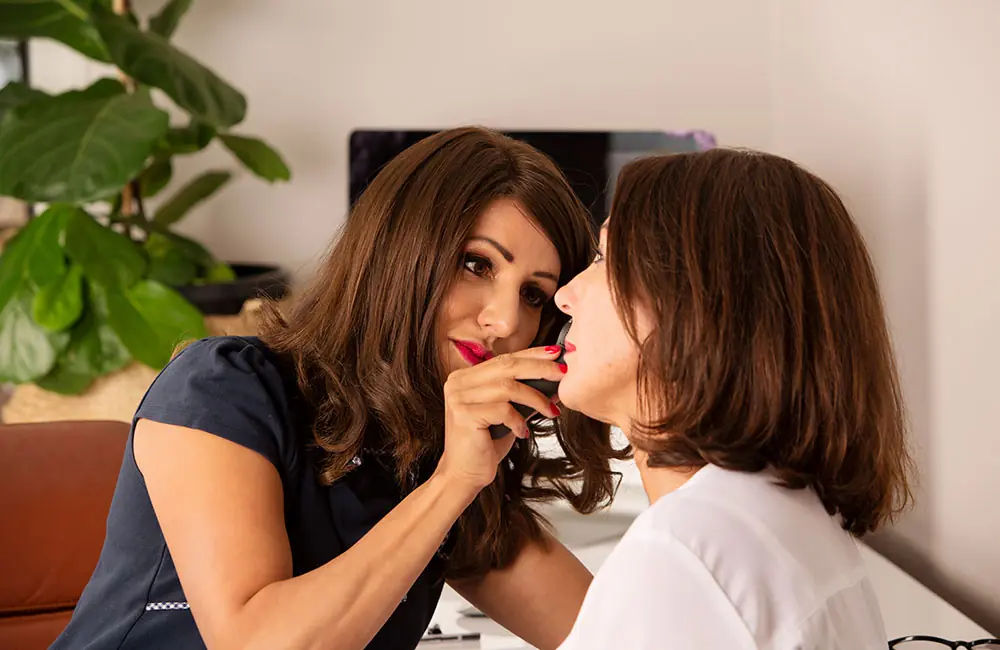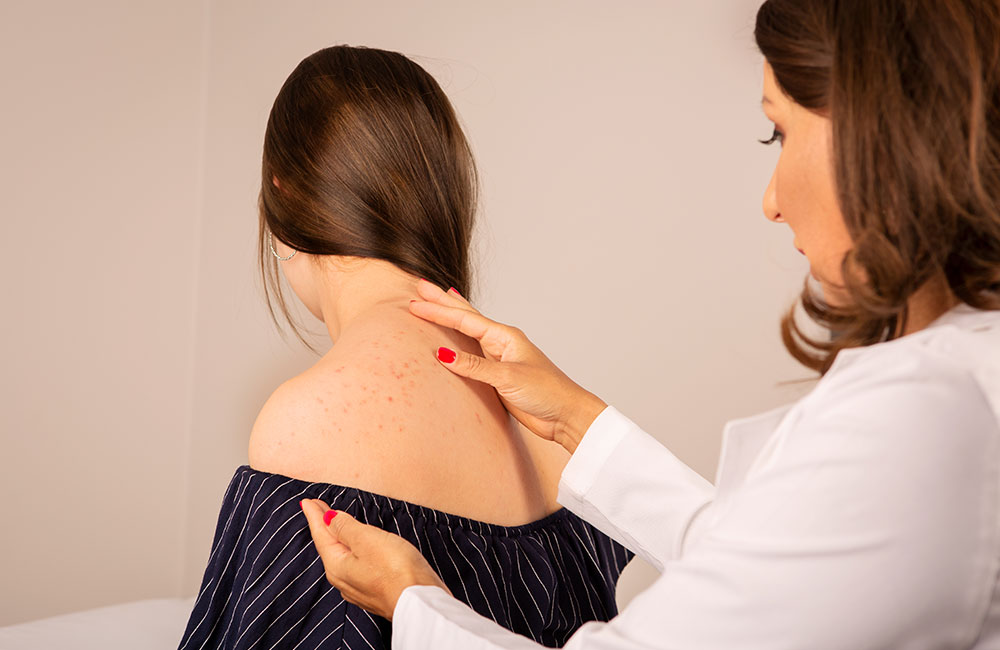Skin Cancer Checks & Treatment in Peregian Beach
Expert diagnosis, mole checks and advanced care by a Board certified dermatologist.
Why Skin Cancer Checks Matter
Skin cancer is Australia’s most common cancer – but early detection can save lives. At our specialist clinic in Peregian Beach, Dr Clare Patterson offers comprehensive skin cancer checks, mole assessments, and surgical removal, all guided by 25 years of international dermatology expertise.
Dermatologists like Dr Patterson are specifically trained to detect subtle skin changes and accurately diagnose skin cancers, including basal cell carcinoma (BCC), squamous cell carcinoma (SCC), and melanoma. If you’ve noticed a spot that’s changing, itching, bleeding or simply doesn’t feel right – don’t wait.
What Does a Skin Cancer Look Like?
Skin cancers can appear in many forms. Common warning signs include:
A new or changing mole
A sore that doesn’t heal
A red or scaly patch
A raised, pearly bump with visible blood vessels
A firm, wart-like or crusted growth
Itching, tenderness, or pain in one area
Something that just doesnt feel right to you














Early Detection of Melanoma
During a mole check, Dr Clare Patterson uses dermatoscopy and draws on over 25 years of clinical experience to carefully assess your skin for early signs of melanoma. Key warning signs include:
- Asymmetrical pigment
- Irregular patterns
- Abnormal growth
- Colour variation within a lesion
- Changes over time
Even subtle changes can be significant – early diagnosis saves lives.
Types of Skin Cancer
- Basal Cell Carcinoma (BCC) – Most common, slow-growing, sun-exposed areas
- Squamous Cell Carcinoma (SCC) – May crust, bleed or become tender
- Melanoma: – The most dangerous type – early detection is critical
What to Expect During a Skin Cancer Check
- Full-body examination using dermatoscope
- Documentation of suspicious lesions
- Immediate biopsy if needed
- Follow-up and treatment plan tailored to your skin type and condition
All skin checks are conducted to gold-standard dermatology protocols, with patient comfort and clarity at the forefront.
Skin Cancer Treatment Options
Depending on the diagnosis, treatment may include:
- Surgical excision
- Cryotherapy
- Curettage and cautery
- Ongoing skin surveillance
You will always receive a detailed explanation of your treatment options, risks, and aftercare plan.
The Role of Dermatologists vs GPs
Dermatologists are medical specialists with advanced training in all skin conditions, including skin cancer. They complete five years of specialist hospital training after medical school and hold professional qualifications in dermatology, giving them expert-level knowledge in diagnosing and managing both common and complex skin diseases.
In contrast, skin cancer doctors are general practitioners (GPs) who first train in family medicine and then pursue additional short courses or certificates in skin cancer. While they play an important role in community screening, they are not dermatology specialists.
Book a Specialist Skin Check
Whether it’s time for your annual skin cancer screening or you’ve noticed something new or concerning, booking with a specialist gives you peace of mind.
FAQS | Skin Cancer
Do I need a referral for a skin cancer check?
How often should I have a skin check?
Annually is recommended for most people, but more frequent checks may be needed if you have a personal or family history of skin cancer, lots of moles, or a history of sun exposure and sun damage.
Will I get results straight away?
If a biopsy is required, results usually take a few days. We’ll contact you to discuss the next steps as soon as they’re available.


